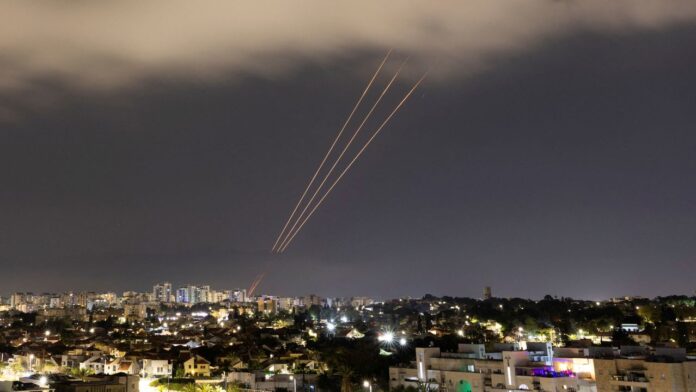- Israel intercepts over 100 Iranian drones in a large-scale retaliation, marking a significant success.
- Around 200 Israeli fighter jets struck nearly 100 Iranian targets during the ongoing operation.
- The drone attack signals a new phase of aerial conflict, raising regional tensions and military challenges.
Israel Intercepts Over 100 Iranian Drones in Dramatic Air Defense Operation
In a striking display of military preparedness, Israel announced on Friday that its air defenses had successfully intercepted more than 100 drones launched by Iran in a sharp retaliation. Brigadier General Effie Deffrin, Israel’s chief army spokesman, revealed that around 200 Israeli fighter jets took part in a coordinated operation targeting nearly 100 Iranian military sites. The strikes were ongoing as officials provided updates, signaling a tense and fast-moving situation.
This unprecedented interception highlights just how high the stakes have become in the region. The massive drone assault marks a significant escalation in Iran’s ability and willingness to directly challenge Israeli airspace. But Israel’s swift response shows the nation’s commitment to maintaining control and protecting its people from emerging threats in an era of drone warfare.
The Scale of the Drone Threat and Israel’s Response
Over 100 drones launched in a single wave is a remarkable demonstration of Iran’s growing drone capabilities. Drones, often seen as a cheaper but effective weapon compared to missiles or fighter jets, provide Iran with a way to strike with precision and saturation. The sheer number of drones sent signals an intention to overwhelm Israel’s air defenses and cause significant disruption.
Despite this, Israel’s air force and defense systems proved highly effective. Brig. Gen. Deffrin emphasized the scale of the Israeli operation, with hundreds of fighter jets launching strikes against Iranian targets. This dual action — intercepting incoming drones while simultaneously hitting back — showcased Israel’s advanced military technology and readiness to confront new threats.
Public and Military Reaction in Israel
The Israeli public received the news with a mix of relief and concern. Many praised the military’s swift interception efforts, seeing it as proof that the country can defend itself against increasingly sophisticated attacks. Social media buzzed with support for the air force pilots and defense crews who worked tirelessly to keep the skies clear.
Yet beneath this pride lurked unease about what this drone attack means for the future. Iran’s ability to coordinate such a large-scale drone offensive signals a new kind of warfare that could become more frequent and dangerous. Israelis wonder if their nation is entering a more volatile phase where drone swarms become a common threat, forcing the military to continuously adapt.
Iran’s Drone Strategy and Its Implications
Iran has invested heavily in drone technology, viewing it as a cost-effective tool to project power in the region. The recent drone assault appears to be a direct retaliation for Israel’s airstrike on Iranian nuclear facilities, which killed several senior military commanders.
By unleashing a drone swarm, Iran sought not just to retaliate but also to test Israel’s defenses and send a message about its growing military reach. The use of drones in such numbers raises questions about the future of air warfare in the Middle East — where unmanned aircraft could become a standard weapon of choice.
A New Chapter in Aerial Conflict
Israel’s successful interception of over 100 Iranian drones marks a watershed moment. It demonstrates that despite Iran’s technological advances, Israel remains capable of defending its airspace against complex threats. However, it also warns of a changing battlefield where drones could play an outsized role in future conflicts.
Experts warn that this drone engagement could signal the start of a dangerous pattern of tit-for-tat drone strikes and interceptions. Both nations will likely continue to develop drone and counter-drone technologies, pushing the region toward a new arms race in unmanned aerial warfare.
What Comes Next?
As of Friday, Israeli forces remained on high alert, ready to respond to any further drone attacks. At the same time, the international community watches nervously. The sheer scale of the intercepted drone attack suggests that future confrontations might be larger and more frequent, with serious consequences for regional stability.
Israel’s military leaders are expected to review and upgrade their air defense systems to handle potentially even bigger drone swarms. Meanwhile, Iran appears determined to continue leveraging drones as a key weapon in its arsenal, raising the stakes for everyone involved.
This dramatic drone interception underscores how quickly military technology is evolving and how it reshapes the rules of engagement in the Middle East. Israel’s ability to shoot down over 100 drones in a matter of hours is a testament to its preparedness — but it’s also a sobering sign of how the nature of war is changing in this volatile region.




